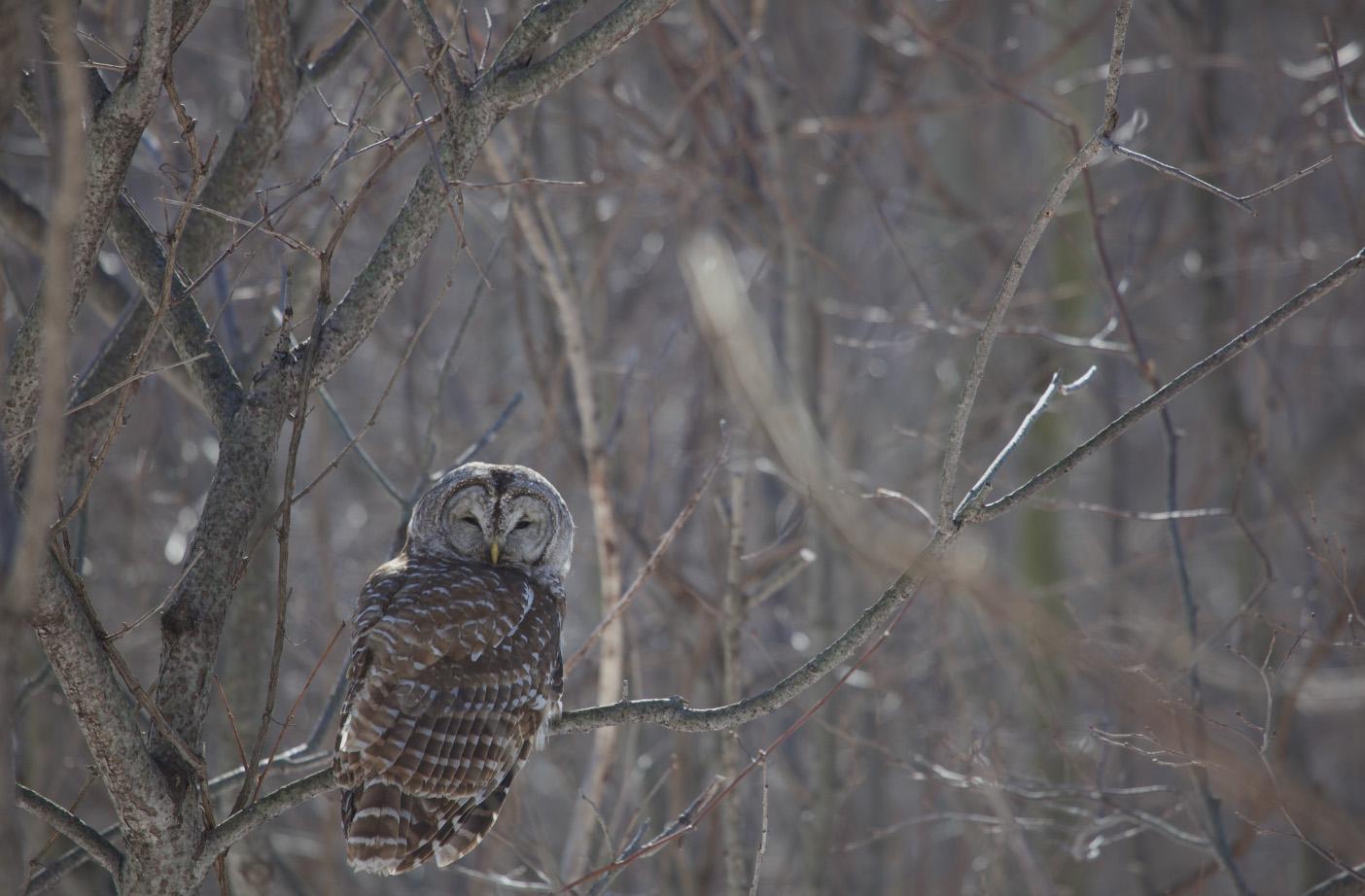Production image from Tiffany Deater's film "No Real Distance" (courtesy of Senses of Cinema).
Senses of Cinema, a major international film journal and the oldest online film journal in the world, has just published “Change Not Mummified” by Bennet Schaber and Tiffany Deater, faculty members in the Department of Cinema and Screen Studies.
In the first half of the essay, Schaber introduces readers to Deater’s films and pedagogy and offers several ways to make sense of them—historically, biographically, structurally and thematically — as displacements of the usual protocols of both film construction and film education. The second half of the essay transcribes conversations from December 2023 between the two Oswego faculty members.
Schaber’s claim is that Deater’s films enact a productive tension between “scientific detachment” and “passionate longing,” that they deploy and deconstruct a rich literary heritage that gives them poetic qualities, and that they are indicative of a “strategy of reorienting the human sensorium, at least as it passes through film as a crucial technological-perceptual milieu, towards environmental elements that might be considered pre- or post-individual.”
The films place the spectator “within a flux that implies forms of communication that can never be certain or even given to consciousness at the macro-level at which film usually captures and organizes human forms of attention,” Schaber said. In this sense they are “nonhuman,” but hardly anti- or in-human.
Deater agrees, pointing to “an unresolved tension in my work between a humanist, quasi-romantic yearning for a nature at once therapeutic and in harmony with the human, but also wild and sublimely indifferent.” On the other hand, she asserts that “precisely through filming, I am trying to forge a technological opening to environments and sensations of which we are rarely if ever conscious.”
In their conversation, Deater not only comments on her films, but relates stories about her work, funded in part by a grant from the National Endowment for the Humanities, with Oswego students in the Adirondacks.
“When Jarrod Hagadorn and I take students to the Floodwood Loop –- we launch from Follensby Pond, the so-called Philosophers’ Camp –- we have them read, which they are unused to, but is kind of a relief from lugging all the film gear around in canoes. So they read Ralph Waldo Emerson, who was there in 1858, and also Henry Wadsworth Longfellow… 'this is the forest primeval' and all that. Longfellow declined to go to the camp, although he was invited. But he heard Emerson was bringing a gun, and he was like, 'no way, that guy is going to kill someone.'”
According to Deater, “In the field, patience, careful observation and physical exhaustion become crucial elements of the filmmaking process.” She also noted that, unlike Emerson, she and the students were unarmed.
“Deater and I have been colleagues for five years,” said Schaber. “I admire her films very much; but this was the first time we’ve really discussed them at length. They have won many awards at festivals, but I really think they deserve to be known more widely. The editors at Senses of Cinema agreed.”
Any students or faculty interested in accompanying Deater and Hagadorn to the Adirondacks are invited to email deater@oswego.edu.
Follow this link to read the complete essay in Senses of Cinema, Issue 109 (May 2024).
-- Submitted by the Department of Cinema and Screen Studies




